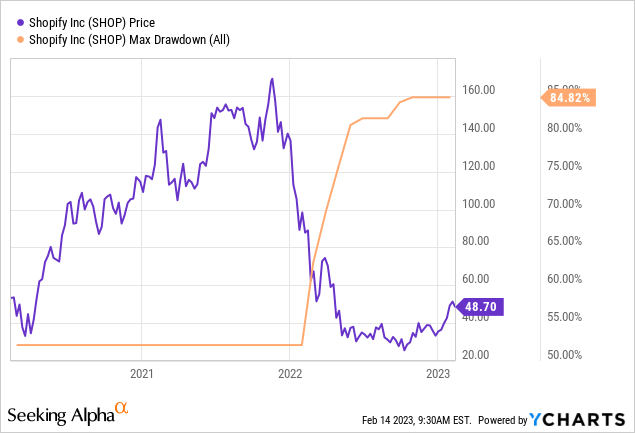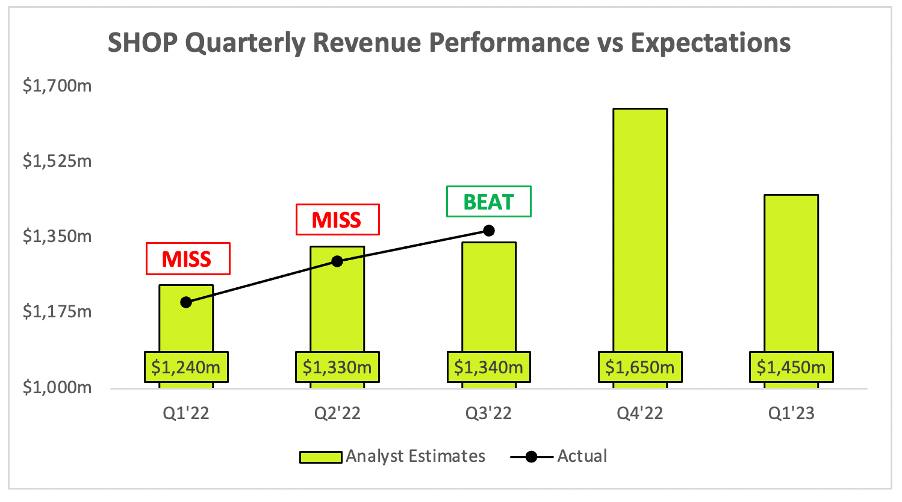Why Shopify loss Market Value while won the whole Q4?
$Shopify(SHOP)$ plunged after posting Q4 Earnings result on Wednesday. Although GMV was strong in the holiday season, the outlook for the next quarter and fiscal year 2023 was not as much as market expected, so it is not surprising to give such negative feedback.
Shopify lost most of its market value in 2022, how to amend it could be a long-term investment issue.
Q4 Earning Overview,
- Revenue 1.73 billion US dollars, a year-on-year increase of 25%, higher than the market consensus of 1.65 billion US dollars;
- GMV reached 61 billion US dollars, a year-on-year increase of 13%, which was higher than the market consensus of 59.1 billion US dollars, and YoY 17% on local currencies.
- By segments, merchant solution revenue increased by 30% to reach US $1.33 billion, higher than the market expectation of US $1.26 billion, while subscription solution revenue increased by 14% year-on-year to reach US $400 million, higher than the market expectation of US $380 million.
- Adjusted gross profit of the company was US $819 million, a year-on-year increase, which was higher than the market expectation consensus of US $772 million
- Comparable EBIT is $61 million, and the market expects a loss of $41 million.
Generally speaking, SHOP's performance in Q4 exceeded market expectations, and it also realized "turning losses into profits". This also proves that these Internet platforms are striving to increase operational efficiency in order to win the favor of investors.
The competition with other consumer platforms has further increased. Shopify also helps merchants attract more buyers to introduce POS Go, an all-in-one mobile POS device, through more channels to improve profit margins. In terms of guidelines, the revenue growth in the first quarter of 2023 will reach more than 15%, while the market expects the consensus to increase by 18% year-on-year, which can also be said that the outlook is less than expected.
Because shopify has enjoyed a very high valuation since its listing, its market-to-sales ratio (P/S) is still 8.8 times, which is much higher than similar companies in the Internet industry and higher than e-commerce platforms such as Amazon and Ebay. Because they are just starting to make profits and the price-earnings ratio (multiple of profits) is ridiculously high, investors are more willing to see the high growth of such companies.
The growth rate is not as expected, which is often the biggest weakness of such companies.
Disclaimer: Investing carries risk. This is not financial advice. The above content should not be regarded as an offer, recommendation, or solicitation on acquiring or disposing of any financial products, any associated discussions, comments, or posts by author or other users should not be considered as such either. It is solely for general information purpose only, which does not consider your own investment objectives, financial situations or needs. TTM assumes no responsibility or warranty for the accuracy and completeness of the information, investors should do their own research and may seek professional advice before investing.



GGGG